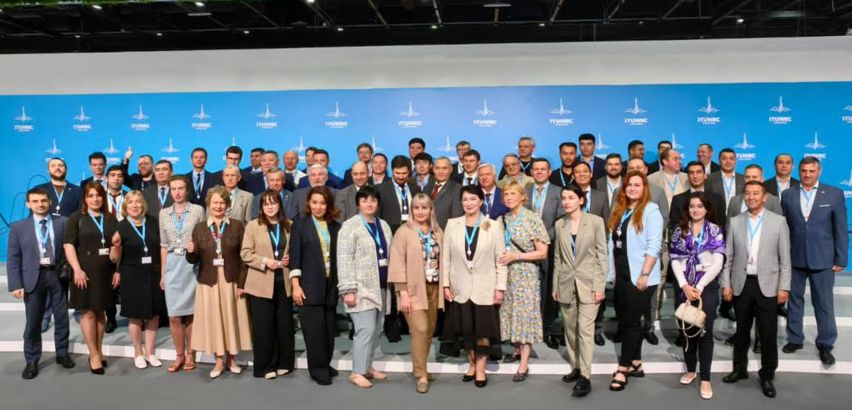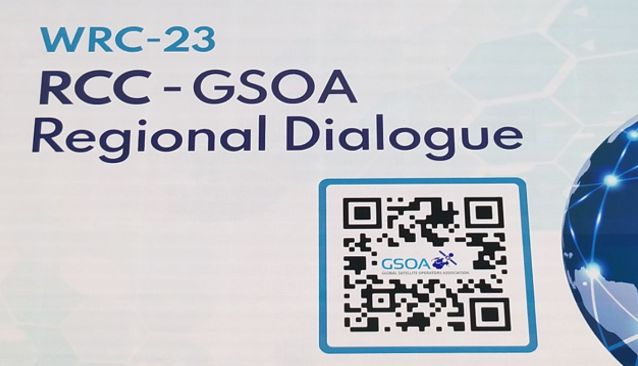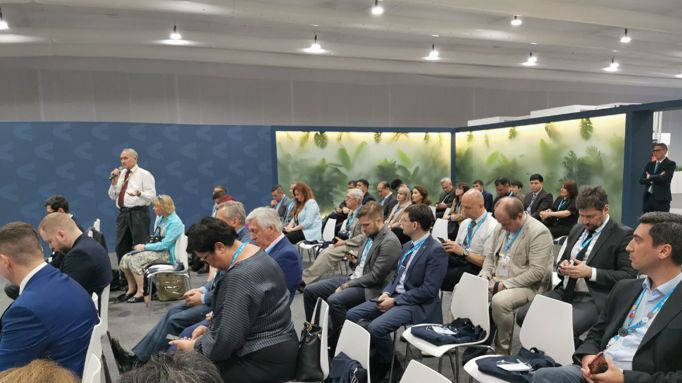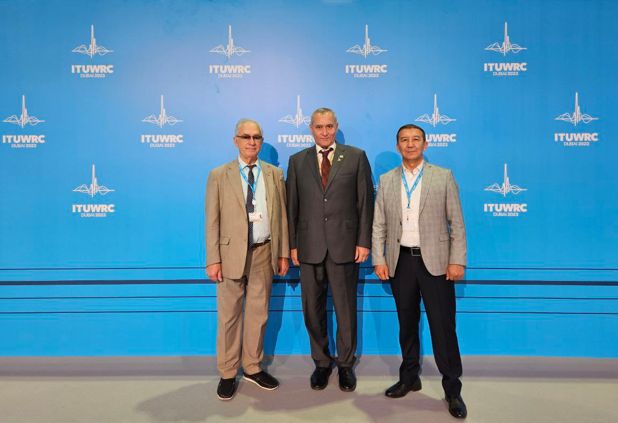
On 24 November 2023, Dubai, UAE, the 5th RCC AU Delegations Coordination Meeting within the framework of the ITU World Radiocommunication Conference was held under the chairmanship of Valery Butenko, RCC Coordinator-in-Charge at WRC-23.
The RCC coordination meeting was attended by representatives of the communications administrations of: the Republic of Azerbaijan, the Republic of Armenia, the Republic of Belarus, the Republic of Kazakhstan, the Kyrgyz Republic, the Russian Federation, the Republic of Uzbekistan, as well as representatives of the RCC Executive Committee.
A total of 49 representatives of the RCC member countries attended the meeting.
Sergey Pastukh, Deputy Chairman of the RCC Working Group on Preparations for RA/WCR-23, made a presentation on the results of the meeting of the WCR-23 Steering Committee.
On the issue "Reports on the results of the meetings of the Committees and their working groups in terms of promotion of the RCC General Proposals and tasks for the current day" the following speakers took the floor:
Vice-Chair of the Working Group on preparation for the RA/WRC-23,
Vice-Chair of Committee 3 - Serikbolsyn Myrzakhmet,
Vice-Chair of Committee 4 - Avaz Khashimkhodjaev,
Vice-Chair of the Committee 5 - Aftab Kalantarli,
Vice-Chair of the Committee 6 - Ulugbek Azimov.
Agenda items for WRC-23 include:
- Identification of additional frequency bands for further development of International Mobile Telecommunications (IMT), including the use of high-altitude platform stations as IMT base stations for universal deployment of wireless networks.
- Improving the international regulatory framework for geostationary orbit (GEO) and non-geostationary orbit (NGSO) satellites while promoting equal access for all countries.
- Utilizing satellite technologies to provide broadband services to improve connectivity, especially in remote areas.
- New spectrum to improve radio communications in air mobile services, including satellite communications, and to facilitate the use of space and Earth exploration satellite services for climate monitoring, weather forecasting and other scientific applications.
- Modernization of the Global Maritime Distress and Safety Communications System
- Regulatory framework for the use of Earth stations in motion on board aircraft and ships to communicate with GEO and NGSO satellites.
The future of the ultra-high frequency (UHF) radio band has implications for television broadcasting, program making and special events, as well as for public protection and disaster relief.
The Radio Regulations ensure that the use of the radio spectrum is rational, fair, efficient and economical, while endeavoring to prevent harmful interference between different radiocommunication services.

WRC-23 included a regional dialogue between a regional commonwealth telecommunications delegation and the Global Satellite Operators Association (GSOA) to discuss the region's priorities and the impact of satellite services.

GSOA represents the interests of the satellite community, advancing the industry's interests and defending its position at key global venues, bodies, and agencies responsible for regulating, standardizing and developing the telecommunications networks of the future. The Association is recognized as the representative body of satellite operators by industry regulators such as the International Telecommunication Union (ITU) and the 3GPP (3GPP) Consortium of cellular standard setters, as well as other important ICT players including the World Economic Forum, etc.
This regional dialogue was planned jointly with the RCC Secretariat to correspond to the regional coordination meeting.
















